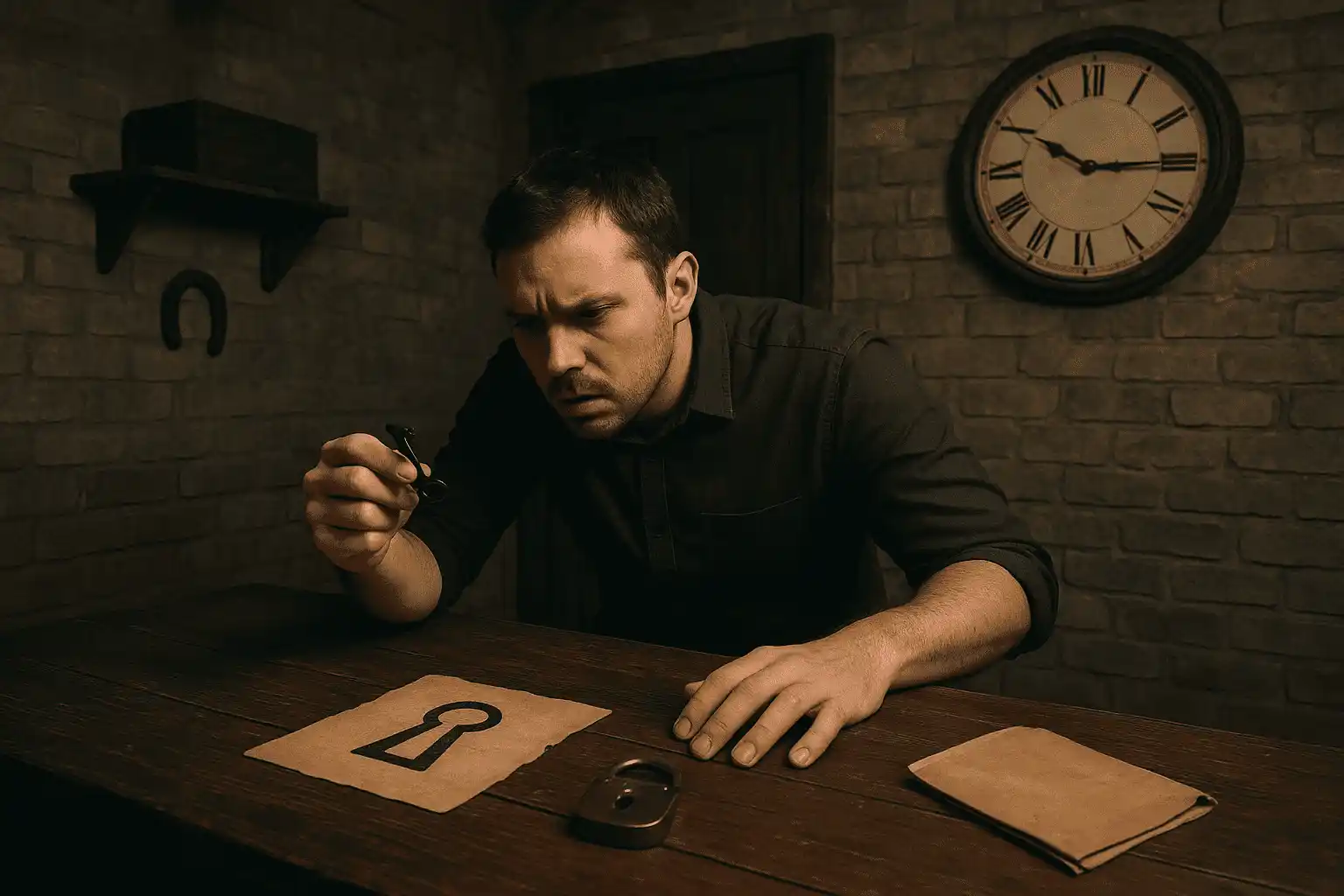When Raleigh Williams walked into one of Texas's most prestigious law firms as an M&A attorney making $180,000 annually, he thought he had reached the pinnacle of professional success. University of Chicago law degree, following his father's footsteps, prestigious career path - everything looked perfect on paper. Then came the panic attack that changed everything.
In this episode of Startups with Stu, host Stuart Draper explores how that terrifying moment led Williams to build Alcatraz Escape Games and three other entertainment brands into a $26 million exit spanning multiple states.
The $180,000 Panic Attack
Williams' crisis came just 30 days into what should have been his dream job. The panic attack on his commute wasn't just stress - it was his body telling him he was living someone else's life. Despite having a wife, young daughter, and substantial educational debt, Williams made the terrifying decision to abandon his legal career entirely.
His father's reaction was swift and brutal - they didn't speak for two years. Williams went from a six-figure salary to zero income, moving into his in-laws' basement with a toddler. The well-trodden path to partnership was replaced by complete uncertainty in the entertainment industry.
The turning point came through a MarketWatch article about escape rooms sent by his brother. That night, Williams booked his first escape room experience in Dallas. Despite the low-quality production, he saw the potential immediately. By morning, he had texted his brother asking if he wanted to quit everything and build escape rooms together.
Three Stages of Business Building
Williams learned the hard way that building a Marketable business requires progressing through distinct stages. His framework breaks entrepreneurship into three critical phases that determine exit value.
Stage One: Self-Employment Most entrepreneurs start here, doing the work themselves while gradually hiring help. Williams describes this as getting paid to do work, then doing that work with assistance. These businesses cannot be sold because they depend entirely on the founder's involvement.
Stage Two: Business Owner The entrepreneur extracts themselves from operations but remains heavily involved in sales and growth activities. They typically serve as CEO while managing business development personally. These businesses have some value but limited exit potential because buyers see the founder as irreplaceable.
Stage Three: Asset Owner The business operates independently with systems and teams handling both operations and growth. The founder's role becomes strategic oversight rather than daily involvement. These businesses command premium valuations because they represent true assets rather than jobs.
Williams spent four years learning to transition between these stages. What took him years of expensive mistakes can be understood in minutes, but implementing the changes requires discipline and often counterintuitive decisions.
The Zero Valuation Wake-Up Call
By 2018, Williams' entertainment business was generating over $1 million annually in profit. Feeling ready for his next adventure, he approached strategic buyers in the trampoline and entertainment space. Their response was unanimous and shocking - despite the strong profits, every potential buyer said the business was worth zero.
The message was clear: profitable doesn't mean Marketable. Williams realized he had built a sophisticated self-employment operation rather than a transferable asset. This harsh feedback launched a four-year transformation focused on building systems, teams, and processes that could operate without him.
The journey included near-disaster during COVID when his multiple locations across several states created $350,000 monthly rent obligations with zero revenue. Williams seriously considered bankruptcy, having personal guarantees on leases in multiple states. The business that seemed so impressive during good times became a massive liability overnight.
Key Success Factors for Marketability
Williams' transformation from zero valuation to $26 million exit required fundamental changes in how he approached business building:
Systems over personality - Buyers purchase predictable processes, not charismatic founders
Team development - Management layers that can operate independently
Defined boundaries - Clear service offerings rather than custom solutions for every client
Financial predictability - Revenue streams that don't require constant founder involvement
Operational documentation - Processes that transfer to new ownership
Growth without founder - Expansion strategies that work regardless of leadership changes
The hardest challenge was often psychological. Williams had to overcome the ego attachment that made him feel valuable only when directly involved in daily operations. Many entrepreneurs resist building sale-able businesses because they fear becoming unnecessary to their own companies.
Building Your Exit Strategy Today
Williams' story on Startups with Stu demonstrates that exit value isn't determined by revenue alone. Profitable businesses can be worthless if they depend entirely on founder involvement, while systematized operations command premium valuations even at smaller revenue levels.
For entrepreneurs currently in the self-employment or business owner stages, Williams' experience provides a roadmap for building transferable value. The transition requires investing in systems and people that feel expensive in the short term but create exponential value for eventual exits.
His current work through exitOS helps entrepreneurs build Marketable businesses from the beginning rather than retrofitting systems later. The framework prevents the painful discovery that profitable doesn't equal valuable when it comes time to exit.
Ready to learn more strategies for building businesses that matter while achieving financial freedom? Subscribe to Startups with Stu for weekly episodes featuring founders who share the real stories behind successful exits and sustainable business building.
Follow Startups with Stu:
Website: StartupswithStu.com
YouTube: @StartupsWithStu
Instagram: @StartupswithStu
Follow Stuart Draper:
LinkedIn: @draperstu
Instagram: @draperstu
Follow Raleigh Williams:
LinkedIn: @Raleigh-Williams
Book: The Creator's Call on Amazon
Alcatraz Escape Games: AlcatrazEscapeGames.com
Website: exitOS.io
Subscribe for Updates
Subscribe to the Startups With Stu newsletter and get advice and stories sent straight to your inbox to help launch your business to the moon!





Comments